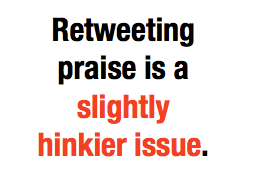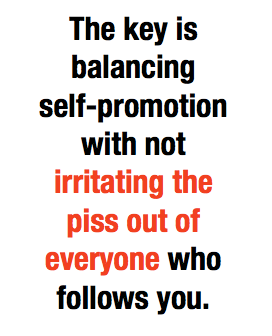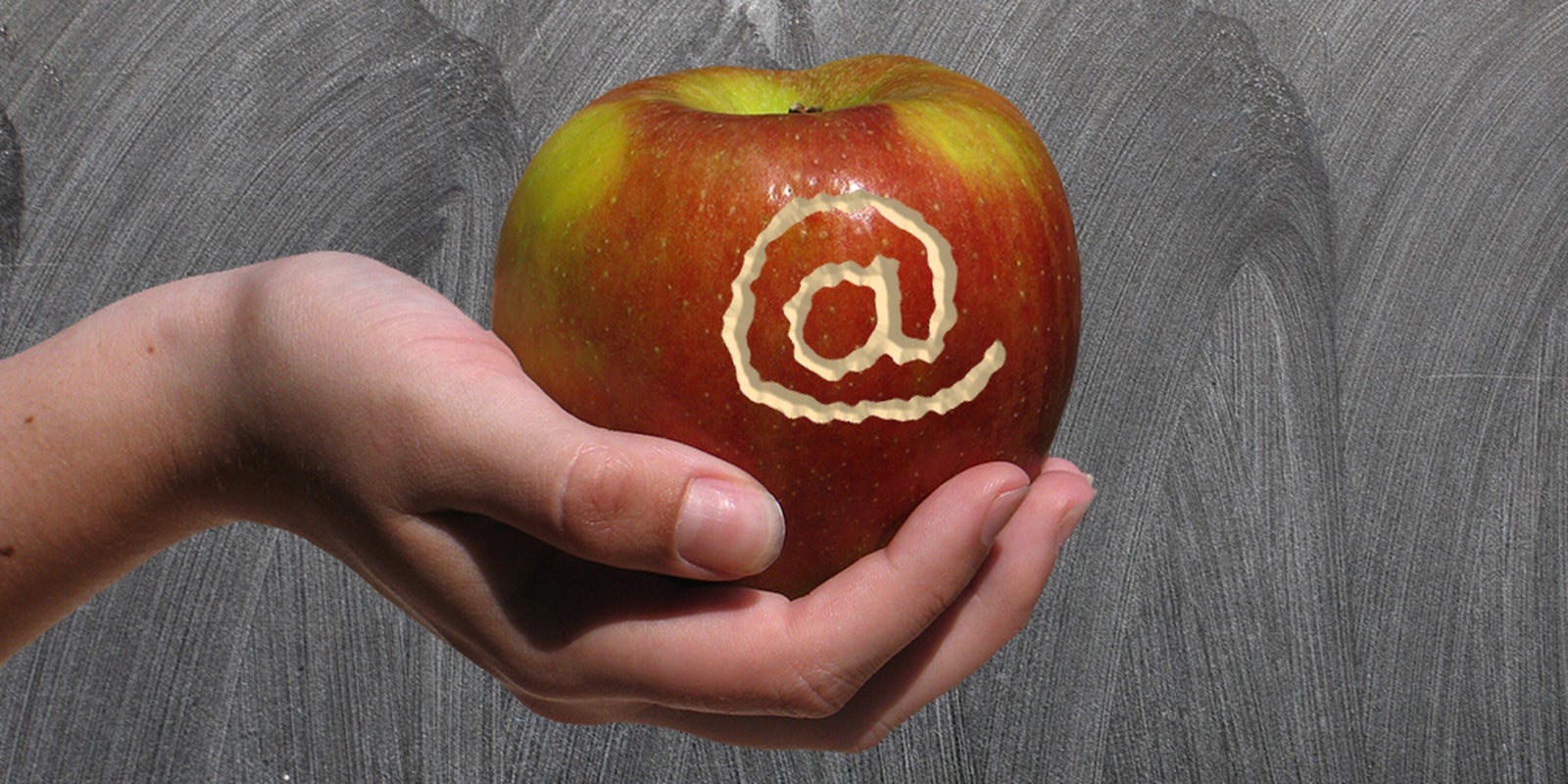Thanks to the Internet, we now have a host of new ways to offend, enrage, misinterpret, creep out, or alienate people. In the Tangled Web, we field your questions about how to be a decent human online. Have a question? Ask jess@dailydot.com.
I’m a journalist who occasionally publishes books and articles that I’d like people to see. I just wrote an article that a lot of people are reading and tweeting about, some with really over-the-top compliments of the sort I don’t usually get. Many of these tweets (though by no means all) are from people I know.
Is it appropriate to just keep sending replies to the tweeters that say thank you? To just retweet? To thank AND retweet? To ignore altogether? I don’t want to turn into one of those insufferable self-promoters or humble-braggers, but I also don’t want to fail to acknowledge that I’m grateful to these folks for saying such nice things—in public—about my work. Nor do I want to let slip this rare opportunity to promote my so-called brand.
 You should feel absolutely no compunctions about responding to your enthusiasts with a “thank you.” Do NOT top-post—i.e., don’t tweet in the form of, “Thanks! RT @wellwisher I loved your article!” If you do that, everyone will be able (and forced) to see it, and it will pollute the tweet stream of all of your followers. But if you’re just doing a normal @ reply, nobody will see it except those who follow both of you. That’s not spammy or inconsiderate; it’s polite.
You should feel absolutely no compunctions about responding to your enthusiasts with a “thank you.” Do NOT top-post—i.e., don’t tweet in the form of, “Thanks! RT @wellwisher I loved your article!” If you do that, everyone will be able (and forced) to see it, and it will pollute the tweet stream of all of your followers. But if you’re just doing a normal @ reply, nobody will see it except those who follow both of you. That’s not spammy or inconsiderate; it’s polite.
That said, you should also not feel an obligation to thank everyone, if they’re people you don’t know personally. If you’re a relatively well-established journalist, most people who praise you on Twitter will not be expecting a personal response. It’s a polite thing to do, but by no means a required one.
Retweeting praise is a slightly hinkier issue. Almost everyone does it occasionally, if they receive a compliment they find particularly overwhelming or funny or surprising or in some way share-worthy. But constant retweeting of praise is also one of the more obnoxious Twitter behaviors, right up there with #hashtagging all your #verbs and #nouns. Doing it too much will not do your so-called brand any favors.
 I can, however, countenance a very limited retweeting of compliments as part of your well-balanced breakfast of self-promotion. Constant “hey, don’t forget to read my articles” tweets get tired too, and RTing a particularly good tweet of someone else’s can do that job for you, reminding followers about your work without requiring you to keep tweeting the same thing over and over.
I can, however, countenance a very limited retweeting of compliments as part of your well-balanced breakfast of self-promotion. Constant “hey, don’t forget to read my articles” tweets get tired too, and RTing a particularly good tweet of someone else’s can do that job for you, reminding followers about your work without requiring you to keep tweeting the same thing over and over.
If you want to be certain that your followers see a particular piece of work, actually, I recommend mixing it up: one regular “look at this article” tweet, one “ICYMI” (in case you missed it) or “for the morning crowd” tweet, one RT of someone else talking about your piece, one tweet that gives additional information about your research or process (a sort of behind-the-scenes peek for people who follow you on Twitter), and then no more. You don’t have to do all of those categories, but you probably should not do more than one from each. The key is balancing self-promotion with not irritating the piss out of everyone who follows you—and, secondarily, presenting people with a range of stimuli to maximize how many people read your piece. (Some people respond better to a tweet from the author, some to a tweet from a third party, for example.)
Think of it this way: If you were having dinner with your friends, you’d feel comfortable starting a conversation with “I got a nice mention in the New York Times” (or whatever). You wouldn’t—or shouldn’t—feel comfortable rattling off a list of everyone who gave you positive feedback, let alone relaying their compliments verbatim. Twitter is no different.
Jess Zimmerman has been making social blunders on the Internet since 1994. Most of her current interpersonal drama takes place on Twitter (@j_zimms).
Art by Jason Reed


